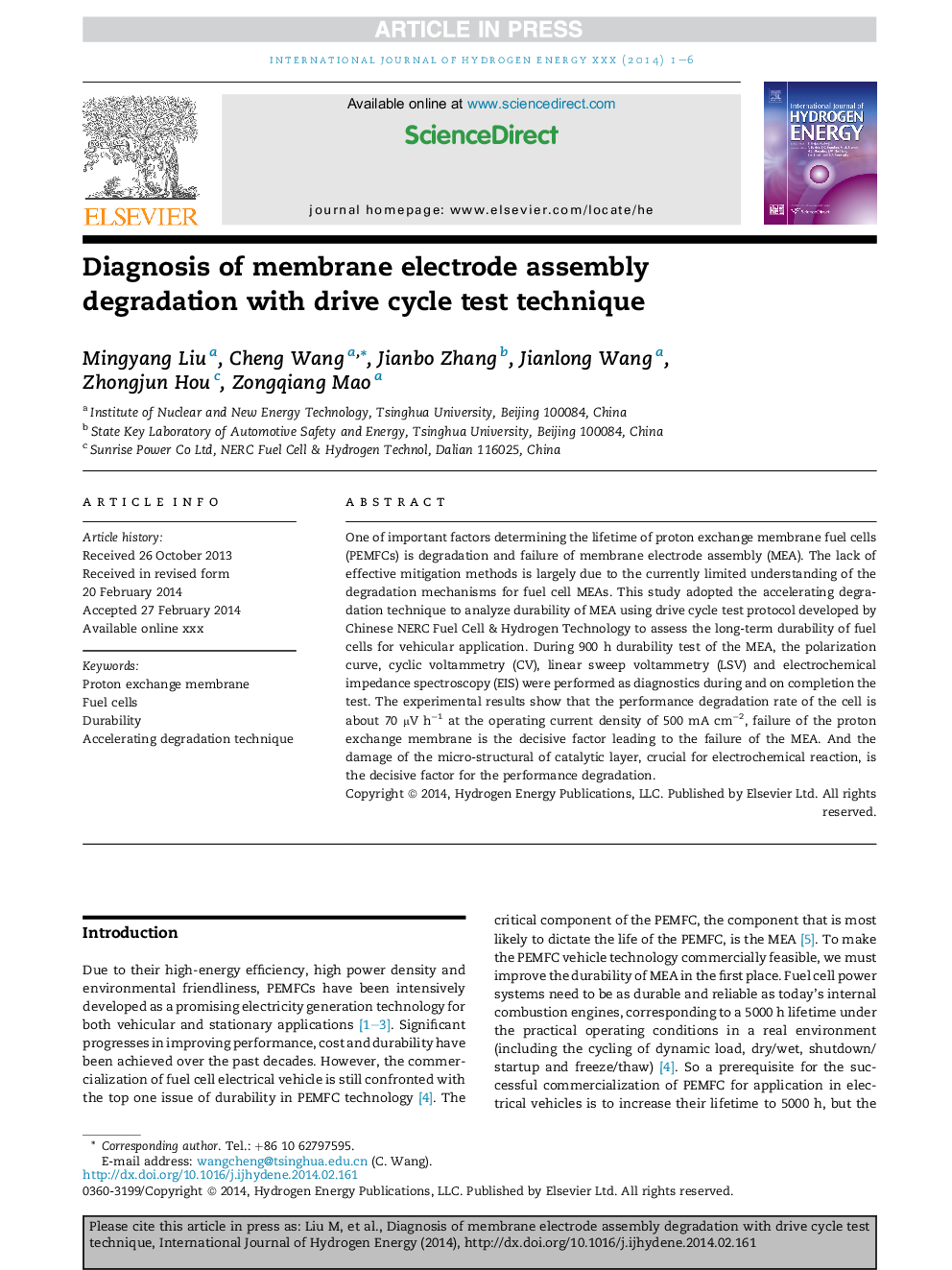| Article ID | Journal | Published Year | Pages | File Type |
|---|---|---|---|---|
| 7718568 | International Journal of Hydrogen Energy | 2014 | 6 Pages |
Abstract
One of important factors determining the lifetime of proton exchange membrane fuel cells (PEMFCs) is degradation and failure of membrane electrode assembly (MEA). The lack of effective mitigation methods is largely due to the currently limited understanding of the degradation mechanisms for fuel cell MEAs. This study adopted the accelerating degradation technique to analyze durability of MEA using drive cycle test protocol developed by Chinese NERC Fuel Cell & Hydrogen Technology to assess the long-term durability of fuel cells for vehicular application. During 900 h durability test of the MEA, the polarization curve, cyclic voltammetry (CV), linear sweep voltammetry (LSV) and electrochemical impedance spectroscopy (EIS) were performed as diagnostics during and on completion the test. The experimental results show that the performance degradation rate of the cell is about 70 μV hâ1 at the operating current density of 500 mA cmâ2, failure of the proton exchange membrane is the decisive factor leading to the failure of the MEA. And the damage of the micro-structural of catalytic layer, crucial for electrochemical reaction, is the decisive factor for the performance degradation.
Related Topics
Physical Sciences and Engineering
Chemistry
Electrochemistry
Authors
Mingyang Liu, Cheng Wang, Jianbo Zhang, Jianlong Wang, Zhongjun Hou, Zongqiang Mao,
